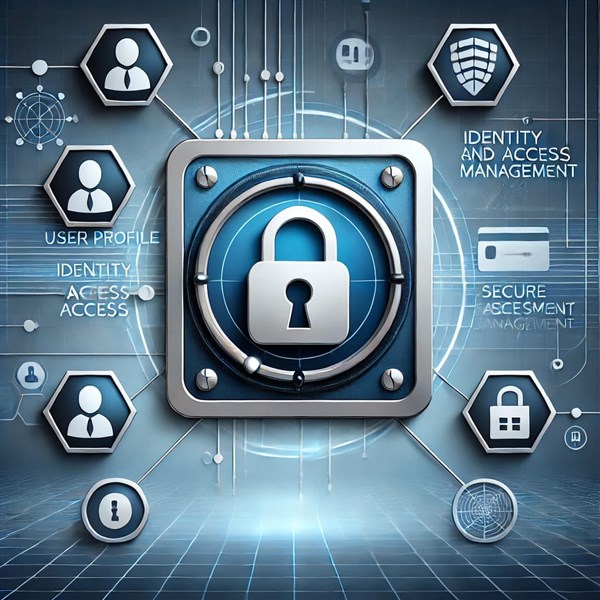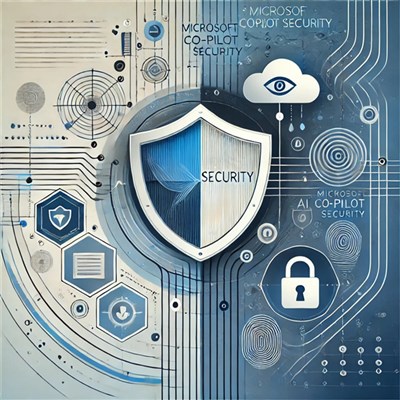
As the digital world grows increasingly complex, managing and securing identities and access to resources has become more critical than ever. Identity and Access Management (IAM) is a cornerstone of cybersecurity, playing a crucial role in protecting sensitive data and maintaining compliance with industry regulations. For IT professionals, obtaining an Identity and Access Management (IAM) certification can significantly enhance career prospects, offering specialized skills that are in high demand. In this blog, we’ll explore the top reasons why earning an IAM certification can be a game-changer for your career.
What is Identity and Access Management (IAM)?
Before diving into the benefits of IAM certification, it’s important to understand what IAM is and why it’s crucial in today’s digital landscape. Identity and Access Management is a framework of policies and technologies that ensure the right individuals have the appropriate access to technology resources. It involves managing digital identities and controlling who has access to information within an organization.
IAM plays a critical role in cybersecurity by:
- Authenticating users: Verifying that users are who they claim to be.
- Authorizing access: Ensuring users have the right permissions to access certain data or systems.
- Auditing and monitoring: Tracking user activity to detect and mitigate security threats.
Why IAM is Important
As businesses shift to digital and cloud-based environments, the need to manage access securely has grown. Data breaches, unauthorized access, and cyberattacks are prevalent threats, and IAM systems are often the first line of defense. IAM solutions ensure that only authorized users have access to the resources they need, which helps protect against breaches and ensure compliance with data protection laws such as GDPR, HIPAA, and others.
Top Reasons to Get an IAM Certification
1. High Demand for IAM Skills in the Job Market
The rise of cloud computing, remote work, and increased cyberattacks has heightened the demand for IAM specialists. Organizations are looking for professionals who can effectively implement and manage IAM systems to protect their sensitive data and critical infrastructure.
Gartner predicts that by 2025, 50% of all IAM projects will be targeted at supporting cloud infrastructure and remote work environments. This highlights the growing demand for professionals with skills in securing these environments through IAM systems.
By earning an IAM certification, you position yourself as a specialized professional in a niche field, making you more attractive to potential employers. Whether you’re looking for a job in cybersecurity, cloud computing, or enterprise IT, having an IAM certification on your resume can give you a competitive edge in the job market.
2. Career Advancement Opportunities
IAM certification can open doors to new and exciting career opportunities. Certified IAM professionals are sought after for roles such as:
- IAM Administrator
- IAM Analyst
- IAM Engineer
- Security Architect
- Access Control Specialist
- Chief Information Security Officer (CISO)
These roles are essential in industries such as finance, healthcare, technology, and government, where security and compliance are critical. An IAM certification can help you move up the career ladder faster by demonstrating your expertise in securing and managing identity and access controls.
3. Enhances Your Knowledge of Cybersecurity Best Practices
IAM is a critical component of cybersecurity, and earning a certification allows you to deepen your understanding of the field. IAM certifications provide you with a thorough knowledge of access control mechanisms, authentication techniques, and the principles of least privilege and zero trust security models.
As part of the certification process, you’ll learn about the best practices for:
- Implementing IAM solutions in cloud and on-premises environments.
- Securing user identities and managing credentials securely.
- Managing roles, groups, and permissions within an organization.
- Ensuring compliance with regulations such as GDPR, HIPAA, and PCI-DSS.
With this knowledge, you’ll be better equipped to manage the security of your organization’s digital assets, ensuring the safety of sensitive information.
4. Helps Ensure Compliance with Regulatory Requirements
Organizations must adhere to stringent data protection laws and industry regulations to avoid penalties and maintain customer trust. IAM systems are integral to achieving compliance by ensuring that only authorized personnel have access to sensitive data.
IAM certifications typically cover the regulatory requirements related to data access and privacy, giving you the expertise needed to ensure your organization complies with frameworks such as:
- General Data Protection Regulation (GDPR)
- Health Insurance Portability and Accountability Act (HIPAA)
- Payment Card Industry Data Security Standard (PCI-DSS)
By becoming certified, you’ll be equipped to help your organization implement access controls that meet these regulatory standards, reducing the risk of data breaches and legal penalties.
5. Stays Ahead of the Evolving Threat Landscape
Cybersecurity threats are constantly evolving, with attackers finding new ways to exploit vulnerabilities in identity and access management systems. By earning an IAM certification, you stay ahead of these threats by learning the latest techniques and technologies for securing identities and access points.
Most IAM certification programs cover emerging trends in identity management, such as:
- Multi-Factor Authentication (MFA): Adding extra layers of security by requiring users to verify their identity through multiple factors.
- Zero Trust Architecture: A security model that assumes no user or device should be trusted by default.
- Privileged Access Management (PAM): Controlling access for privileged accounts to reduce the risk of insider threats.
With this knowledge, you’ll be well-prepared to adapt to new security challenges and protect your organization from evolving cyber risks.
6. Improves Your Problem-Solving and Critical Thinking Skills
IAM is not just about technology—it’s about solving real-world security challenges. By earning an IAM certification, you’ll develop strong problem-solving and critical thinking skills that can be applied to a range of IT and cybersecurity challenges.
You’ll learn how to:
- Analyze access control issues and develop solutions.
- Identify and mitigate potential security risks in IAM systems.
- Implement secure and scalable IAM solutions for different types of organizations.
These skills are highly valuable in today’s digital landscape, where IT professionals must be able to think on their feet and adapt to constantly changing threats.
7. Potential for Higher Salaries
IAM professionals are often rewarded with competitive salaries due to their specialized knowledge and expertise. According to Payscale, the average salary for an IAM specialist in the United States is around $97,000 per year, with senior roles such as IAM Manager or Security Architect earning significantly more.
With an IAM certification, you can increase your earning potential and position yourself for higher-paying roles within your organization or the broader job market.
Popular IAM Certifications to Consider
There are several IAM certifications available, depending on your level of experience and career goals. Some of the most recognized IAM certifications include:
- Certified Identity and Access Manager (CIAM)
- Certified Information Systems Security Professional (CISSP) – with a focus on access control.
- Certified Access Management Specialist (CAMS)
- Certified Identity Governance and Administration (CIGA)
Each of these certifications focuses on different aspects of IAM, allowing you to choose the one that best aligns with your career path.
Conclusion
Identity and Access Management is a vital component of modern cybersecurity, and obtaining an IAM certification can provide you with the skills and knowledge needed to protect your organization’s digital assets. From high demand in the job market to career advancement opportunities, regulatory compliance, and enhanced problem-solving skills, the benefits of earning an IAM certification are clear. Whether you’re an IT professional looking to specialize in cybersecurity or a seasoned expert aiming to stay ahead of the curve, an IAM certification is an invaluable asset that can boost your career and make you a more effective and trusted professional.
In conclusion, getting an IAM certification is an investment that can yield significant returns in your IT career. It not only boosts your professional standing but also opens up a world of opportunities. If you are looking to get certified, Koenig Solutions, a leading IT training company, offers a comprehensive range of IAM certification courses that can help you achieve your career goals.

.jpgM.jpg)


.jpgM.jpg)


COMMENT